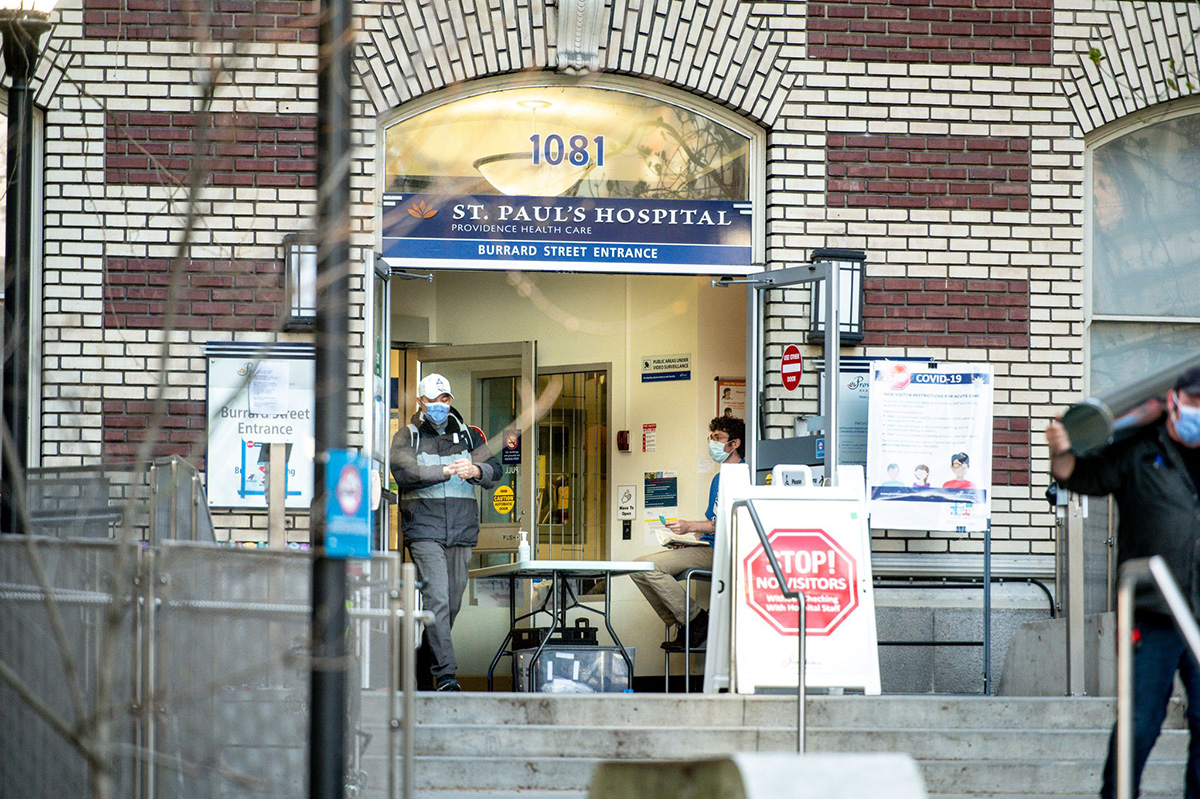British Columbia is now treating every new case of COVID-19 as though it is a more contagious strain of the virus, a move that public health officials say reflects the pandemic’s variant-driven third wave.
But whether that will improve the response to the surge in cases as a result of the virus variants remains to be seen, according to two experts.
“Clearly there’s a huge advantage to treating it as high transmission today, instead of high transmission in two days after it’s been confirmed through genomic sequencing,” said Caroline Colijn, an epidemiological modelling expert at Simon Fraser University.
What matters now is whether treating every new case as a variant means faster and more thorough testing, tracing and isolation, she said.
“We didn’t stamp out regular COVID either, so we could have treated that as an emergency before it got to this point.”
Colijn, who released a model in January that predicted a variant-driven resurgence of cases if B.C. didn’t change course, also isn’t a fan of the “wave” analogy.
Waves are passive, coming and going no matter what we do, she explained, but COVID only recedes with quick, strong action.
At the pandemic’s outset, it was more like “a forest fire we fought with hoses until it receded over the hill,” said Colijn. “And when the fire came blazing back over the ridge, we said, ‘Oh my god, we thought it was gone.”
Colijn said she’s participated in expert calls on COVID Zero strategies, and it’s clear exponential growth is possible even as lower case numbers are achieved.
“What we’re doing with this mitigation strategy is trying to put out half the fire... but we don’t get half the benefits because there’s still some fire that grows and grows.”
Henry has acknowledged the winds of the pandemic fire are shifting, with transmission intensifying among younger adults and frontline workers.
The most recent data to the end of March shows young people under 40 are being hospitalized at similar rates to those seen through the entire pandemic.
But 20- to 39-year-olds compose about 60 per cent of 878 confirmed cases of the highly-contagious P1 variant — linked to a cluster among tourists and staff in Whistler — compared to about 40 per cent of cases of the most common B117 variant and original strain.
Hospitalization data from the last month also doesn’t indicate a significantly higher rate of hospitalization for people with variants, but more cases could reveal concerning increases in severe outcomes seen around the world, particularly for the P1 variant.
Despite this change, the province has enacted a “circuit-breaker” set of restrictions without enforcing recommendations against non-essential travel.
And it has continued a largely age-based vaccination plan rather than shifting priority to groups like younger frontline workers who are seeing high rates of new cases.
Contact tracing has already shown that the more transmissible variants being brought home from worksites are infecting entire households or families and roommates, rather than one or two people as the original strain did.
Vancouver Infectious Diseases Centre chief medical officer Dr. Brian Conway said vaccines should go to younger people and essential workers before variant cases begin to spill further into older age groups.
So far, about one in five of the province’s 4.3 million eligible adults have received a first vaccine dose.
And instead of shutting down entire sectors, the province should release detailed data on where and when transmission is taking place, he said.
“We don’t have enough information [as the public] to understand why the restrictions are the way they are,” said Conway in an interview. “It’s always safest to say we’re shutting everything down, but it’s going to be hard to get people to comply unless they’re given information to support it.”
There is also little data about the total number of variants among active cases.
Provincial health officer Dr. Bonnie Henry said Thursday that B.C. will no longer sequence most samples that are identified as possible variants.
Surveillance testing to “understand the evolution of the viruses we are seeing cause illness over time” will monitor the impact on vaccine efficacy as well as the potential of people who recovered from COVID-19 to be reinfected with a variant, Henry said.
The current process, where 90 per cent of positive tests are screened for variant markers and then fully analyzed in a time-consuming process, has only been able to confirm 3,766 total variants as of Tuesday. There are about 9,200 active cases in the province.
Conway said the actual number is likely higher. “The truth to me is we’re probably in the 40- to 50-per-cent range” of new cases that are variants, he said.
Colijn and Conway agreed the new strategy could help the province gain a more accurate picture of the variants’ presence.
But only if that information is treated with urgency.
“We did not prevent variants from establishing themselves in our communities, and we need to be in a position to stop this,” said Colijn. “If a vaccine-resistant pandemic evades protection and begins elsewhere, I would love to see it not come here.” ![]()
Read more: Coronavirus

















Tyee Commenting Guidelines
Comments that violate guidelines risk being deleted, and violations may result in a temporary or permanent user ban. Maintain the spirit of good conversation to stay in the discussion.
*Please note The Tyee is not a forum for spreading misinformation about COVID-19, denying its existence or minimizing its risk to public health.
Do:
Do not: